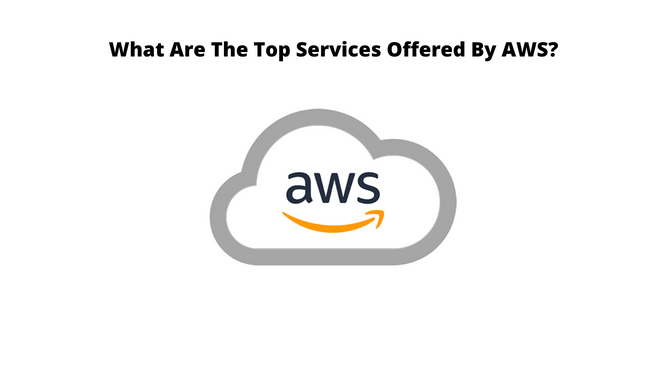Introduction:
Amazon Web Services (AWS) is a cloud computing platform that provides a wide range of services, from computing and storage to analytics and security. With so many services available, it can be difficult to know which ones to use. In this blog post, we will take a look at the top services offered by AWS. We will cover computing, databases, analytics, security and identity, and the Internet of Things (IoT). By the end of this post, you should have a better understanding of the services available on AWS and be able to make informed decisions on which ones to use for your business.
1. Compute Services
At Amazon, we believe that technology should make our lives easier. That’s why we offer a variety of compute services that can be used to power your business. Whether you need to power your website or run a series of sophisticated calculations, Amazon has the right service for you. The best approach to leverage job-centric skills in the field of AWS is by joining the AWS Training in Hyderabad course offered by Kelly Technologies.
To start, let’s take a look at Amazon Elastic Compute Cloud (EC2). EC2 is a cloud computing platform that provides scalable computing capacity in the cloud. This means that you can use EC2 to power your website or run complex calculations without having to worry about managing servers. Additionally, EC2 enables you to easily scale your application up or down as needed – perfect for when demand increases or decreases.
Next, let’s take a look at Amazon Elastic Container Service (ECS). ECS is a container orchestration service that allows you to run, scale and manage Docker containers. This means that you can use ECS to create and manage self-contained applications without needing any additional infrastructure. Additionally, ECS makes it easy to deploy and manage complex applications – perfect for web applications or mobile apps.
Last but not least, let’s take a look at Amazon LightSail. LightSail is a virtual private server (VPS) designed for easy deployment of web apps. With LightSail, you can quickly launch a new website or application with minimal hassle and configuration required. Plus, since LightSail is based on Ubuntu Linux, it offers high-performance capabilities and stability not found on other VPS platforms.
Learn About The Types Of Compute Services Provided By AWS
If you’re looking for a cloud provider that offers a vast range of compute services, look no further than AWS. AWS is a cloud platform that provides a variety of compute options, including Amazon EC2 instances, Amazon Elastic Container Service (ECS), Amazon Elastic Kubernetes Service (EKS), and Lambda. This article will provide an overview of each type of compute service and explain the benefits and drawbacks of using them.
What is AWS?
AWS is an online platform that offers users access to a vast array of compute services. These services include Amazon EC2 instances, which are virtual machines that can be used for running applications or websites; ECS, which allows you to manage multiple containers; and Lambda, which is a serverless computing platform that allows you to run code without having to setup and manage servers.
Types of Compute Services in AWS
AWS provides users with three types of compute services: classic computing, storage, and networking. Classic computing refers to the traditional methods for processing data – such as running applications on dedicated servers or using software as a service (SaaS) providers such as Google Cloud Platform or Microsoft Azure. Storage refers to the storage space used by these applications or websites; network refers to how those applications can interact with other systems on the internet. Each type of service has its own set of benefits and drawbacks that will be discussed later in this article.
Amazon EC2 Instances
Amazon EC2 instances are virtual machines that can be used for running applications or websites. They come in different sizes and types – from small 1-core instances up to high-end 16-core instances – and they offer different levels of performance so you can find the perfect fit for your needs. You can also use Amazon EC2 instances to run containerized applications thanks to ECS – see below for more details on this feature.
Amazon Elastic Container Service (ECS) allows you to manage multiple containers using your preexisting AWS resources. You simply attach images representing your containers onto an ECS instance, and then configure those containers with the resources they need (such as CPU cores, memory size, ports open etc). This makes it easy to spin up new containerized applications quickly without having to spend time installing any dependencies manually.. Additionally, ECS manages allocating resources between your containers so they all have enough CPU power and memory when required.. Finally, ECS manages scaling up or down your containerized application. This article in the Life United must have given you a clear idea of the AWS industry.
